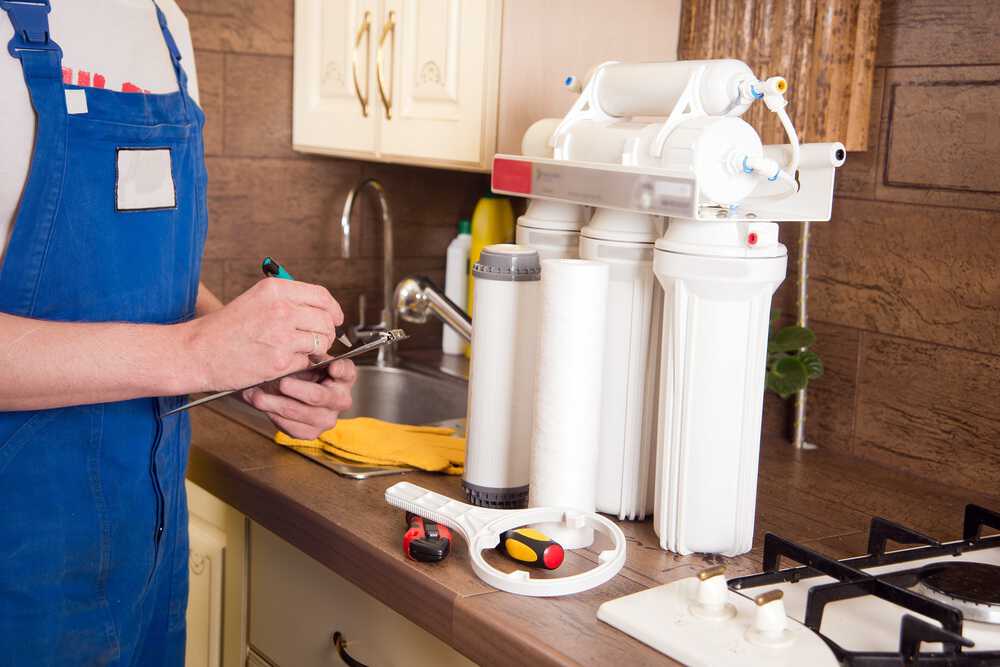Having access to pure and safe drinking water is a fundamental necessity for every household. An under sink water filter system is an excellent way to ensure that your family has constant access to clean water straight from the tap. This guide will help you navigate the different types of systems available and assist you in making an informed decision.
Why Choose an Under Sink Water Filter?
Under sink water filters are popular for several reasons. They are compact, easy to install, and do not take up precious counter space. Additionally, these systems are generally more effective than other types of filters, such as pitcher filters or faucet attachments, as they often include multi-stage filtration processes that remove a wider range of contaminants.
Understanding Different Types of Filters
When it comes to under sink water filters, there are several types to consider. The most common are carbon block filters, reverse osmosis systems, and ceramic filters. Each type has its advantages and specific contaminants it targets. Choosing the right one depends on the kind of impurities present in your water supply.
Carbon Block Filters
These filters use activated carbon to remove impurities. They are effective in reducing chlorine, volatile organic compounds (VOCs), and odorous substances. They are also cost-effective and efficient for everyday use in households with municipally treated water.
Reverse Osmosis Systems
A reverse osmosis system is among the most comprehensive filtration methods available today. It works by forcing water through a semi-permeable membrane to remove impurities, including heavy metals, fluoride, and nitrates. This system is ideal for areas where water contains significant levels of contaminants.
Ceramic Filters
Ceramic filters are excellent for removing bacteria and sediment from water. With micro-pores small enough to block pathogens, these filters are ideal for areas where microbiological contamination is a concern.
Key Features to Consider
When selecting an under sink water filter, there are some important features to evaluate. The filter’s lifespan, capacity, and ease of maintenance should be major considerations. Additionally, check for certifications or tests confirming the system’s effectiveness in meeting water quality standards.
Filter Lifespan and Capacity
Different filters have different lifespans and capacities; therefore, it is crucial to choose a system that aligns with your family’s water consumption needs. The longevity of a filter can vary based on water quality and usage habits.
Maintenance and Installation
Another crucial factor is the ease of installation and ongoing maintenance. Some systems are more user-friendly and designed for minimal maintenance, making them more suitable for households with a hectic lifestyle.
Cost and Value
While initial costs can vary widely, it is imperative to consider the long-term savings that a high-quality water filtration system can provide. Investing in a reliable system can reduce the need for purchasing bottled water, thus offering both economic and environmental benefits.
Evaluating Water Quality
Before deciding on a specific under sink water filter, assess the quality of your water by conducting a water test. This can help determine the types of contaminants present and guide you in selecting the most suitable filtration system.
The Role of Certification
Certain certifications can provide peace of mind regarding the effectiveness of a water filter system. Look for certifications from reputable organisations that confirm the filter’s ability to reduce specific contaminants, ensuring your drinking water’s safety.
Benefits of Choosing Pure Water Systems
Pure Water Systems offers a variety of under sink water filters, each designed to meet different filtration needs while ensuring ease of use and maintenance. With a commitment to quality and customer satisfaction, they provide systems that are environmentally friendly and sustainable.
Making the Right Decision
In conclusion, choosing the right under sink water filter system requires careful consideration of your specific needs and water quality. Take the time to explore different systems, evaluate their features, and consult reputable providers like Pure Water Systems to make the most informed decision for your home.







